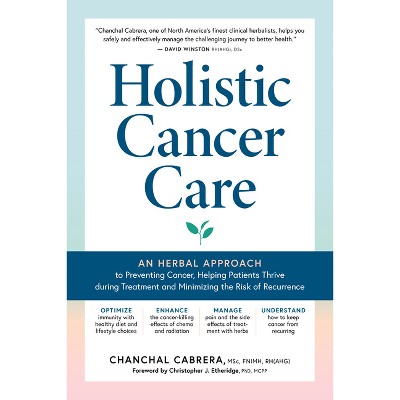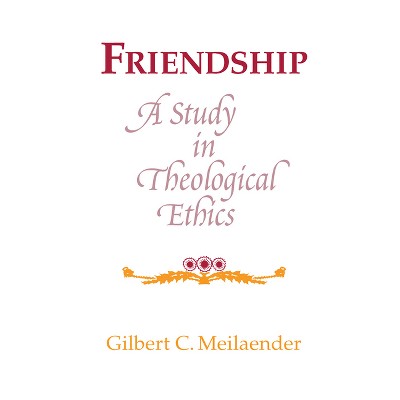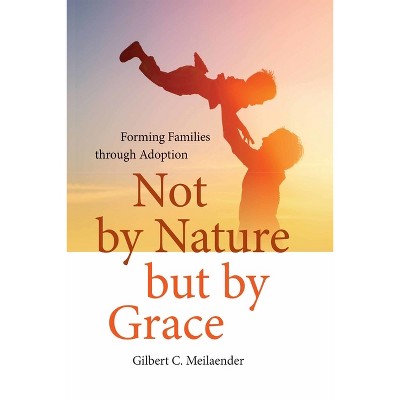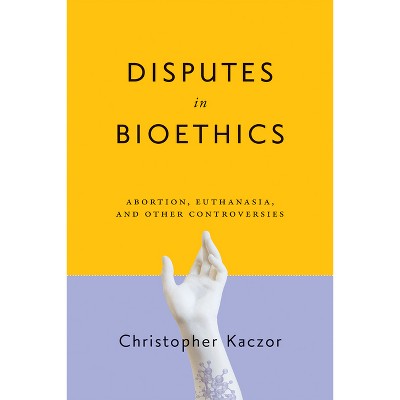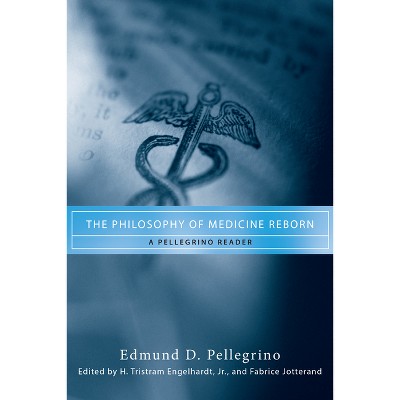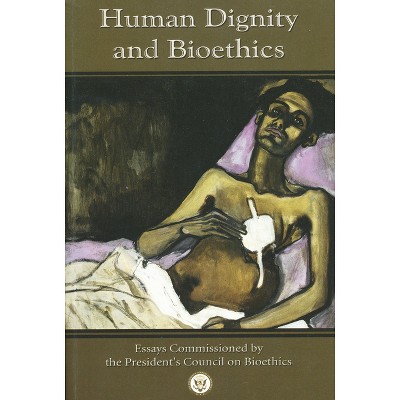Sponsored

Body Soul Bioethics - by Gilbert C Meilaender (Hardcover)
In Stock
Sponsored
About this item
Highlights
- In his newest book noted theologian and ethicist Gilbert C. Meilaender examines how the field of bioethics has developed over the last quarter century and reconsiders some of its central concepts and arguments.
- About the Author: Gilbert Meilaender holds the Phyllis and Richard Duesenberg Chair in Christian Ethics at Valparaiso University, Indiana.
- 144 Pages
- Medical, Ethics
Description
Book Synopsis
In his newest book noted theologian and ethicist Gilbert C. Meilaender examines how the field of bioethics has developed over the last quarter century and reconsiders some of its central concepts and arguments. Because the literature of bioethics has become increasingly less influenced by religious and theological concerns over the past three decades, it is Meilaender's specific aim to uncover and recapture the importance of theological reflection for current debates in bioethics.
Meilaender suggests that the development of bioethics as a discipline in its own right has not been entirely benign. He argues that an increasing focus on public policy has obscured the importance of background beliefs about human nature and destiny, and that without drawing attention to those beliefs one cannot fully see what is at stake in many bioethical debates. Rather than seeking a minimalist consensus, Meilaender explores ethical problems surrounding the end and beginning of life in order to uncover the "soul"--that is, some of the deeper issues within bioethics that need our attention. Abortion, the issue that so often lurks just beneath the surface of bioethical argument, is discussed in the final chapter. Throughout the book Meilaender emphasizes the "soul" of all these issues--questions about who we are and what we may become, and suggests that recapturing that soul will lead us to a new appreciation of the living body as the locus of personal presence.
Ethicists, theologians, and bioethicists will appreciate Body, Soul, and Bioethics for redirecting bioethical discussion away from its current focus on public policy back toward questions of metaphysical and religious significance.
From the Back Cover
In his newest book noted theologian and ethicist Gilbert C. Meilaender examines how the field of bioethics has developed over the last quarter century and reconsiders some of its central concepts and arguments. Because the literature of bioethics has become increasingly less influenced by religious and theological concerns over the past three decades, it is Meilaender's specific aim to uncover and recapture the importance of theological reflection for current debates in bioethics. Meilaender suggests that the development bioethics as a discipline in its own right has not been entirely benign. He argues that an increasing focus on public policy has obscured the importance of background beliefs about human nature and destiny, and that without drawing attention to those beliefs one cannot fully see what is at stake in many bioethical debates. Rather than seeking a minimalist consensus, Meilaender explores ethical problems surrounding the end and beginning of life in order to uncover the "soul" - that is, some of the deeper issues within bioethics that need our attention. Abortion, the issue that so often lurks just beneath the surface of bioethical argument, is discussed in the final chapter. Throughout the book Meilaender emphasizes the "soul" of all these issues - questions about who we are and what we may become, and suggests that recapturing that soul will lead us to a new appreciation of the living body as the locus of personal presence. Ethicists, theologians, and bioethicists will appreciate Body, Soul, and Bioethics for redirecting bioethical discussion away from its current focus on public policy back toward questions of metaphysical and religious significance.Review Quotes
"[A] worthy read, particularly for Christians who have been engaged in 'doing bioethics' but have found the direction of development of the field troubling." --Christian Scholar's Review
"Meilaender must be read. His diagnosis is astute, his logic cogent, and his arguments concise. Anyone interested in the present and future of bioethics must take this critique seriously." -- Ethics
"Meilaender offers a superb critique of much of what is wrong with bioethics today." --Theological Studies
"There is no better stylist in theological ethics today than Gilbert C. Meilaender. The economy and simplicity of language with which he conveys serious conceptual content qualify him as a significant public intellectual." --Cross Currents
About the Author
Gilbert Meilaender holds the Phyllis and Richard Duesenberg Chair in Christian Ethics at Valparaiso University, Indiana. He has served on the Board of Directors of the Society of Christian Ethics, as an Associate Editor of Religious Studies Review, and as an Associate Editor of the Journal of Religious Ethics. He is also a Fellow of the Hastings Center and was a member of the President's Council on Bioethics from 2002 to 2009. He is a Distinguished Fellow with The Center for Bioethics & Human Dignity. He is the author of Friendship: A Study in Theological Ethics (Notre Dame Press, 1981), The Theory and Practice of Virtue(Notre Dame Press, 1984), and Faith and Faithfulness: Basic Themes in Christian Ethics (Notre Dame Press, 1991). Meilaender has been a member of the President's Council on Bioethics since its inception in January 2002.
Shipping details
Return details
Frequently bought together
Trending Non-Fiction






